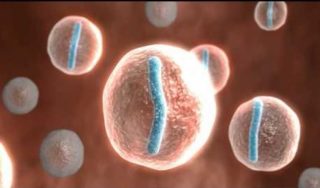PGD / PGS with IVF in Indian Clinics
PGD in India- Procedure to select your future child free from any genetic abnormalities –
Each and every parent wishes to have a rosy-cheeked & healthy baby, at a specific time of life. PGD/PGS Treatment is a diagnostic assay procedure used throughout the IVF method if needed by the couple. PGD India is fully known as Preimplantation Genetic Diagnosis is done to spot genetically abnormal embryos. Throughout the procedure, a special sort of cell known as blastomere is taken out from the embryo for genetic analysis this cell is removed after the third day of egg retrieval from the female partner.
PGD in India reduces the possibilities of miscarriage and helps to eliminate significant defect from the baby. PGD in India is usually preferred or recommended to those couples who are older and making an attempt to induce pregnant – most frequently if you& thirty five or older, and positively of your over the age of forty – once the possibilities of a fortunate physiological condition or pregnancy is lower and also the miscarriage is higher. It’s conjointly done of either partner carries a hereditary condition. This process is the best for embryo screening, screening of embryo helps to choose healthy and fit embryo to transfer into the female uterus. If the embryo is in fine feather then obviously, baby after 9 months of pregnancy duration will also blooming and rosy-cheeked. Preimplantation screening (PGS) is fulfilled by IVF procedure, PGS is done to look at fertilized eggs or embryos for any abnormalities in their chromosomes, and thereby decrease the risks related to abnormal condition embryos. PGS is done on day three or day five of the embryonic stage where all twenty-four chromosomes are examined before they replanted in the female internal reproductive organ (uterus). GO IVF Surrogacy lavish upon crackerjack specialist of PGD India. Go IVF Surrogacy’s specialists seek for abnormalities like a further copy of body twenty one that causes Down’s syndrome, incorrectly organized chromosomes, and alternative important changes. PGD/PGS is an advanced technique to settle upon that embryo which is the best and free of any hereditary or genetically abnormal number of chromosomes.
GET FREE CONSULTATION
Why PGD/ PGS?

Many women have a risk to have a pregnancy with chromosome abnormalities, this risk does increase in relation to the woman’s age. With PGD a patient of advanced maternal age would have the option of analyzing the chromosomal integrity of their embryos prior to implantation and therefore less likely to be faced with potentially difficult decision making during an ongoing pregnancy. The parents can pursue PGD for aneuploidy, an embryo the wrong number of chromosomes such as Down syndrome (an extra chromosome 21), to optimize the chance of having a healthy baby.
Also some of our patients who experienced prior pregnancy loss want their embryos tested as chromosomal abnormalities are the most common cause of miscarriage. 50% of first trimester miscarriages are due to a chromosome abnormality. PGD is also an option for patients with a family history of inherited genetic disorders who need to have their embryos analyzed to exclude any affected embryos being transferred.
- Autosomal Trisomies (i.e., Down’s Syndrome)
- Autosomal Monosomies
- X, Y Numerical Disorders (Turner’s Syndrome, Kleinfelter’s Syndrome)
- Translocations (Reciprocal or Robertsonian)
- Deletions
- Cystic Fibrosis
- Duchenne Muscular Dystrophy
- Hemophilia A
- Retinitis Pigmentosa
- TaySachs Disease
- Sickle Cell Anemia
- Thalassemias
- 119 Others

If you are considering PGD and IVF, you may be concerned about the risk of not being able to use all of your fertilized embryos. Some experts say that PGD will not affect the pregnancy rates of IVF. However, if an embryo is found to have genetic or chromosomal abnormalities, it might not be implanted into the uterus. This would reduce the number of embryos that can be transferred.
Sometimes doctors will identify an embryo or fetus to be at risk for a genetic disorder, but the baby may grow up without ever showing signs of the disease or abnormality.Embryos that do have problems are sometimes misdiagnosed as healthy, and then transferred to the female. A baby could then be born with unexpected problems.In addition, doctors can mistakenly identify a healthy embryo as abnormal, causing a perfectly healthy embryo to be discarded. Experts recommend that if a couple’s embryos show no genetic or chromosomal abnormalities during PGD, and the woman gets pregnant, more testing should be done during the pregnancy to make sure the baby is healthy.

